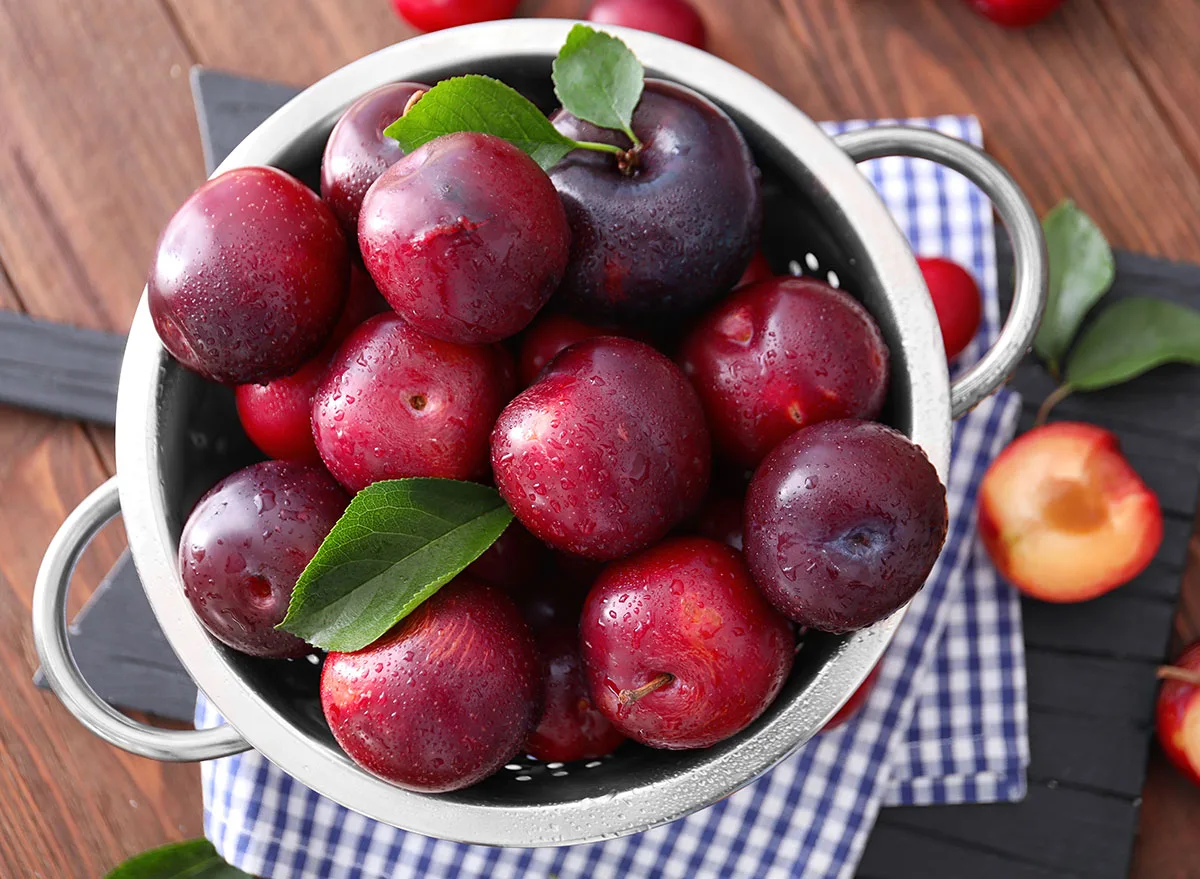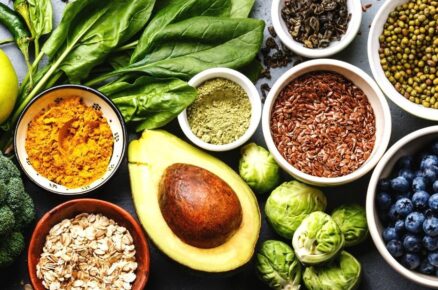Yes, plums are good for men’s health due to their nutrient content and potential health benefits. Plums are small, sweet or tart fruits that belong to the Prunus genus and are closely related to peaches and cherries. While there is no widely known direct interaction between “Fildena 200” and plums, it’s crucial to prioritize your safety and well-being.
To enjoy the health benefits of plums, you can consume them fresh, dried (as prunes), or used in various recipes such as salads, desserts, and smoothies.
As with any food, moderation is key. Including a variety of fruits and vegetables, including plums, in your diet provides a wide array of nutrients and health benefits. If you have specific dietary concerns or health conditions, consider consulting with a healthcare professional or a registered dietitian for personalized advice and recommendations tailored to your individual needs and goals.
Here are some reasons why plums can be beneficial for men’s health:
Rich in Nutrients:
Plums are a good source of essential nutrients, including vitamins (such as vitamin C, vitamin K, and vitamin A), minerals (such as potassium, copper, and manganese), and dietary fiber.
Plums are a good source of vitamin C, also known as ascorbic acid. Vitamin C is a potent antioxidant that helps protect cells from oxidative damage, supports the immune system, and aids in collagen production for healthy skin, bones, and connective tissues.
It is provide vitamin A in the form of beta-carotene, which is important for vision, immune function, and skin health. It is contain vitamin K, which is essential for blood clotting and plays a crucial role in bone health.
Plums are rich in dietary fiber, which comes in both soluble and insoluble forms. Fiber aids in digestion, promotes regular bowel movements, and helps maintain a healthy gut.
It is contain various antioxidants, including phenolic compounds and anthocyanins, which help neutralize harmful free radicals in the body, reducing oxidative stress and inflammation.
Heart Health:
The potassium content in plums may help regulate blood pressure and support heart health. Additionally, plums contain antioxidants that may help reduce oxidative stress and inflammation, contributing to overall cardiovascular well-being.
Plums are a good source of antioxidants, including phenolic compounds and anthocyanins. These antioxidants help neutralize free radicals, reducing oxidative stress and inflammation in the body. Lowering oxidative stress can help protect blood vessels and the heart from damage caused by free radicals.
The antioxidants in plums have been associated with heart-protective effects. Studies suggest that regular consumption of antioxidant-rich fruits, including plums, may help lower the risk of heart disease.
Plums are a good source of potassium, an essential mineral that plays a crucial role in maintaining heart health. Potassium helps regulate blood pressure by counteracting the effects of sodium on blood vessel walls. Adequate potassium intake is associated with lower blood pressure levels, which reduces the risk of hypertension and related heart conditions.
Plums are naturally low in saturated fat, which is beneficial for heart health. Diets high in saturated fat have been associated with an increased risk of heart disease.
Bone Health:
Plums contain vitamin K and manganese, which play essential roles in maintaining bone health and bone density.
It is contain vitamin K, a crucial nutrient for bone health. Vitamin K plays a vital role in the synthesis of osteocalcin, a protein involved in bone mineralization. Adequate vitamin K intake is essential for maintaining strong and healthy bones.
Plums are a good source of vitamin C, which is important for collagen production. Collagen is a structural protein found in bones that provides strength and flexibility.
It is provide essential minerals like potassium and manganese, which play roles in bone health. Potassium helps neutralize acid in the body, reducing calcium loss from bones, while manganese is involved in bone formation and repair.
Plums are rich in antioxidants, including phenolic compounds and anthocyanins. These antioxidants help protect bone cells from oxidative stress, which can lead to bone damage and degradation.
Immune Support:
The vitamin C in plums supports the immune system, helping the body defend against infections and illnesses.
Plums are a good source of vitamin C, also known as ascorbic acid. Vitamin C is a potent antioxidant that supports the immune system by protecting cells from oxidative stress caused by free radicals.
It also enhances the function of immune cells, such as white blood cells, which play a crucial role in defending the body against infections.
Plums are rich in antioxidants, including phenolic compounds and anthocyanins. These antioxidants help neutralize free radicals and reduce oxidative stress in the body. Lowering oxidative stress can enhance the immune response and promote overall immune health.
Some compounds found in plums, such as flavonoids, have anti-inflammatory effects. Chronic inflammation can weaken the immune system and make the body more susceptible to infections. By reducing inflammation, plums may help support immune function.
Weight Management:
Plums are relatively low in calories and fat, making them a nutritious option for individuals watching their weight. Plums are rich in dietary fiber, both soluble and insoluble. Fiber helps promote satiety and a feeling of fullness, which can help control hunger and reduce overall food intake.
Plums offer natural sweetness without added sugars. Choosing whole fruits like plum over sugary snacks can help reduce overall calorie consumption. It have a high water content, contributing to hydration and helping to quench thirst, which can sometimes be mistaken for hunger.
Plums are nutrient-dense, meaning they provide essential nutrients like vitamins, minerals, and antioxidants without an excessive number of calories. Choosing nutrient-dense foods supports overall health while managing weight.
Your healthcare provider can provide guidance based on your individual health status, medical history, and medication regimen to ensure safe and effective use of “Cenforce 200” or any other medication.
The fiber in plums slows down the digestion and absorption of sugars, leading to a gradual release of energy. This steady energy release can help maintain stable blood sugar levels and prevent energy crashes that may trigger overeating.
Antioxidants:
Plums are rich in antioxidants, including phenolic compounds and anthocyanins, which help neutralize free radicals and protect cells from oxidative damage. It is contain various phenolic compounds, including chlorogenic acid, neochlorogenic acid, and quercetin.
These compounds are potent antioxidants that contribute to the fruit’s protective properties. The deep red, purple, or blue color of some plum varieties is due to anthocyanins, which are powerful antioxidants.
Anthologists not only protect the fruit but also provide potential health benefits when consumed. Plums are a good source of vitamin C, also known as ascorbic acid. Vitamin C is a well-known antioxidant that plays a crucial role in neutralizing free radicals and supporting the immune system.
It is contain beta-carotene, a pro vitamin A compound that acts as an antioxidant and is converted into vitamin A in the body. These are carotenoids found in plums that are essential for eye health and act as antioxidants, protecting the eyes from oxidative damage. Plums contain various flavonoids, including quercetin and kaempferol, which have antioxidant and anti-inflammatory properties.












